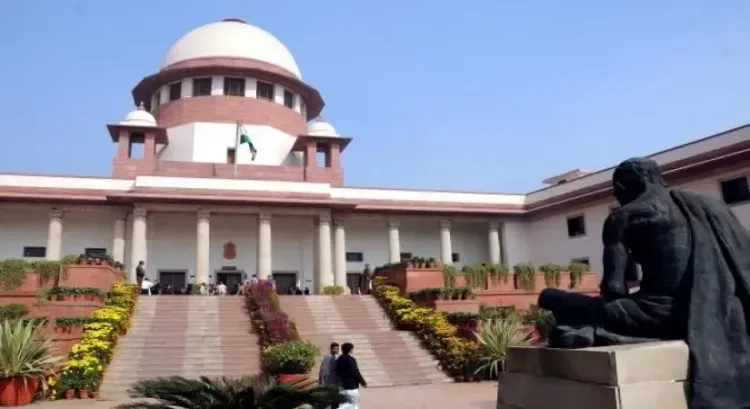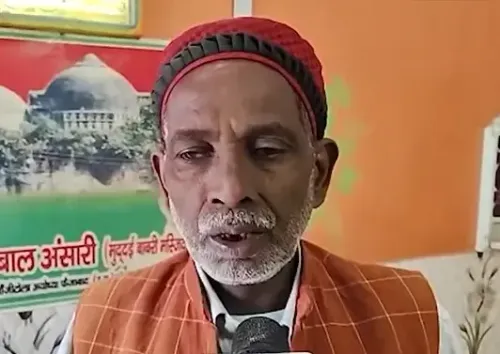'Present this issue to Parliament': SC declines PIL against laws 'discriminating against men'

Synopsis
Key Takeaways
- The Supreme Court dismissed a PIL against laws perceived as targeting men.
- Key provisions of several acts were challenged for violating fundamental rights.
- The court encouraged petitioners to raise their concerns in Parliament.
- The petition argued that laws presuming men as aggressors infringe on fair trial rights.
- Claims of discrimination based on religion were also raised.
New Delhi, Feb 3 (NationPress) The Supreme Court on Monday rejected a public interest litigation (PIL) that aimed to declare certain laws primarily “targeting men” and “unfairly presuming men as aggressors in domestic disputes as unconstitutional.
In dismissing the petition, a bench comprising Justices B.R. Gavai and K. Vinod Chandran stated: “Go raise this before Parliament.”
The plea sought to invalidate Sections 2, 3, 4, and 8A of the Dowry Prohibition Act, 1961, along with Sections 498A of the Indian Penal Code, 1860, and its equivalent in the Bhartiya Nyay Sanhita, 2023. It also challenged Sections 2 and 3 of the Protection of Women from Domestic Violence Act, 2005, as well as Section 12(1)(c) of the Hindu Marriage Act, 1955, arguing that these laws violate fundamental rights guaranteed by the Constitution and India's international human rights commitments.
According to the petition, the contested provisions mainly target men, allowing allegations to be treated as proof of guilt and establishing a framework of presumed culpability that contradicts the essential principle of ‘innocent until proven guilty’, as stated by advocate Pankaj Sharma who filed the petition.
These laws unjustly presume men as aggressors in domestic disputes, thereby infringing upon the right to a fair trial, it further contended.
The petition also asserted that “dowry is misrepresented as a practice inherent to Hinduism”, despite historical evidence linking its origin to Roman, Greek, and Christian traditions. It argued that Hindu religious texts do not endorse dowry practices, making laws that target Hindus in this context arbitrary, discriminatory, and violative of Article 15, which prohibits discrimination based on religion.
The plea claimed that Section 2 of the Dowry Prohibition Act, by associating dowry with Hindu marriage customs, promotes a false narrative that undermines Hindu culture by creating an association lacking factual or historical support. Similarly, it asserted that Sections 3 and 4 of the Act subtly imply that the vice of dowry exists and penalize Hindu men based on mere presumptions related to dowry demands or involvement in dowry transactions.
“Section 8A of the Dowry Prohibition Act, 1961 places the burden of proof for innocence on the accused, violating the principle of presumption of innocence until proven guilty, a fundamental aspect of natural justice,”
the petition highlighted.
It noted that under the Protection of Women from Domestic Violence Act, 2005, women are automatically considered “aggrieved persons” based on their claims, categorizing men as “respondents”.
Furthermore, the petition argued that dowry laws and Section 498A of the IPC are often misused as instruments of harassment and extortion, particularly against men and their families. These laws embody a presumption of guilt, thereby infringing upon men's rights to a fair trial, the petition contended.
This misuse reveals the malice embedded within these laws, leading to injustice instead of fairness, which violates Articles 14, 19, and 21 of the Indian Constitution, it added.
By imposing an implicit presumption of guilt on men while assuming women are victims, disregarding individual circumstances or evidence, the plea claimed this constitutes sex-based discrimination, violating Article 15 of the Constitution and perpetuating societal biases.










